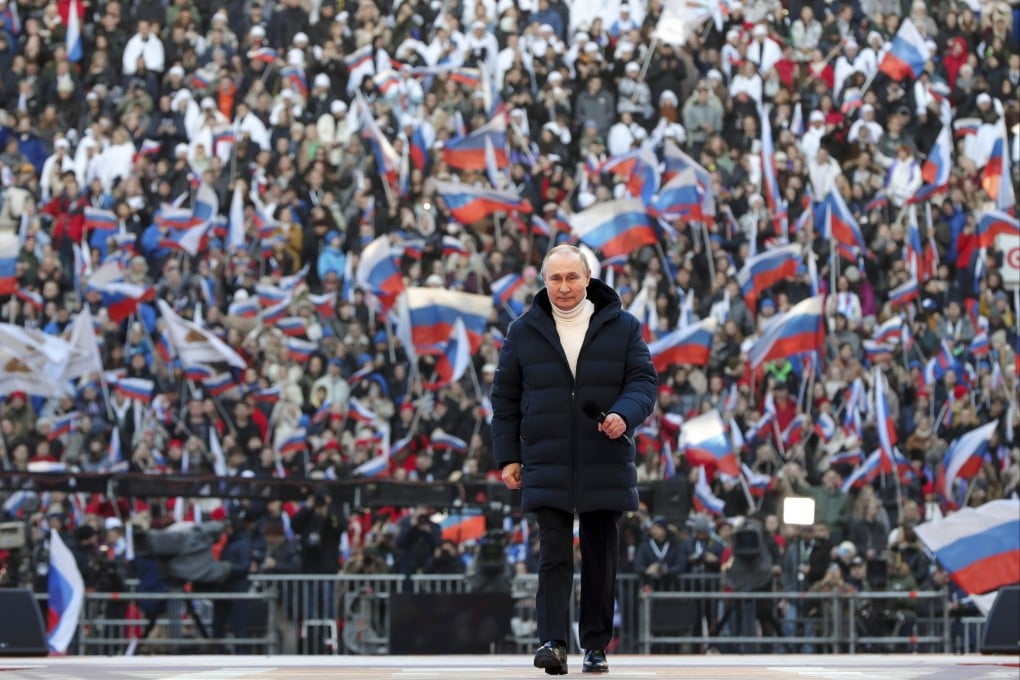Advertisement
Opinion | What lies behind Russian support for Putin’s war in Ukraine?
- A recent poll shows the Russian president continues to enjoy massive popular support
- This may be less because Russians lack of access to genuine information, but due to the pervasiveness of an ‘expulsion of alien enemies’ narrative
Reading Time:3 minutes
Why you can trust SCMP
51

To the astonishment of most of the world, a respected polling organisation in Moscow recently reported an 83 per cent domestic approval rating for Russian President Vladimir Putin. Given the war in Ukraine, Westerners by and large cannot fathom how this could be true.
After all, Putin’s invasion now looks like a colossal mistake. It has resurrected Ukrainian nationalism, unified Nato, and shocked the world in its brutal attacks on Ukrainian civilians, including children.
Many Westerners opine that these results show that Russians simply do not have access to accurate information. Others believe the results do not indicate genuine opinions because Russians self-censor their answers when speaking about many issues. But even if the polling numbers are skewed, other forms of evidence suggest they reveal something important.
Advertisement
For example, countless anecdotal reports tell of ordinary Russians rejecting claims that the war is anything other than what Putin says it is and dismissing contradictory evidence as fake news orchestrated by the CIA or other enemies of Russia.

Their tenacity in the face of strong evidence to the contrary points to the power of a national narrative that shapes the interpretation of events in Russia. This is an “expulsion of alien enemies” narrative template which can be summarised as: Russia is living peacefully and bothering no one, but then trouble arrives in the form of an unprovoked brutal attack by a foreign enemy. This results in massive suffering and heroic resistance by Russia before it, acting alone, manages to crush and expel the evil alien force.
Advertisement
Advertisement
Select Voice
Select Speed
1.00x
